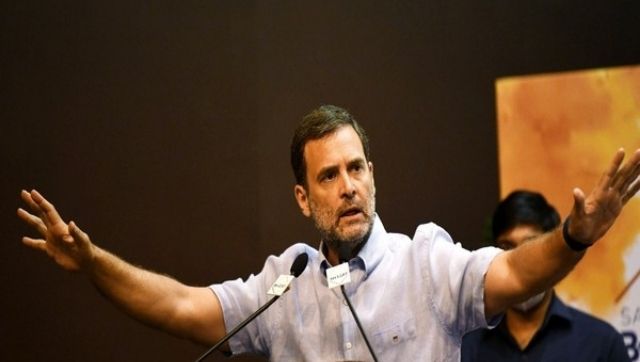By Indrani R, Sai KT and Shalini P
Writer Aatish Taseer recently criticised the efforts of non-resident Indians (NRIs) to look at India’s past through their eyes. He did this through an article in The Times of India titled History to His story: A renaissance of the pamphleteer-intellectual .
Aatish Taseer seems to have an NRI-phobia even though he himself is half-Indian. He seeks to delegitimise and trivialise NRIs, and the challenges they face in addressing the distortions of India in western academy, including Indian history and Sanskrit. Clearly, he is unaware of the contemporary academy where independent and public intellectuals and cross-discipline work are the accepted norm.
Interestingly, he sees nothing wrong when non-Indians are heralded as experts having an outsider’s perspective, and are seen as experts above the practitioners of Indian traditions. Well qualified insiders to these traditions are often sidelined because westerners are held in awe by many Indians. Indeed as a person from the Indic civilisation, Taseer himself must have a stake in asking why we so readily promote western scholars above Indian ones.
Taseer uses the term “pamphleteer-intellectual” to discredit NRIs challenging the status quo in western academy. He slanders a prominent Indian scholar by calling him a “monkey”. Instead of dealing with the message, he tries to “kill the messenger”, using the pejorative “pamphleteer-intellectual” reference to discredit their credentials.
Paradoxically, he, by his own standards, lacks the required scholarship for critiquing the issues he raises, being best described as “a journalist opinion-writer.” A quick analysis of the content in his article “ History to His story: A renaissance of the pamphleteer-intellectual ” shows a predominance of the writer’s opinion based on distortions and few facts, Moreover, he fails to present the original scholarship of which he says the present analysis by NRIs is but a “renaissance”.
He writes: “There is a new interest among Indians and NRIs in India’s classical past . . . still so much to be done . . . major texts still to be edited; epigraphs, such a valuable source of information about the past, to be sifted through; commentaries to be read and critical editions to be compiled.” While mentioning that this kind of scholarship is not expected from India, he dismisses the right of NRIs to do such work, even if it is their heritage.
Recent incisive and scholarly writings from NRIs, like Invading The Sacred and Rajiv Malhotra’s Indra’s Net _,_ have, for the first time, confronted western academy head on. They have unearthed the lack of academic rigour and hidden, imperialistic agendas in India studies within western academy. This has caused great discomfort to western academics accustomed to going unchallenged on malicious scholarship on India. They have since circled the bandwagon with Taseer looking like the latest recruit.
Why has Taseer not mounted a challenge to non-Indians like Sheldon Pollock and his followers whose focus is on portraying Sanskrit as a classical, dead language? How is it that someone who is not a practitioner of the language, or indeed the culture that produced that language, is allowed to make sweeping generalisations while Indian origin scholars engaged in challenging some of the claims of Pollock and others are deemed unqualified by Taseer?
Does he have a tacit interest in relegating Sanskrit as a dead language, as it happened with Latin? Does Sanskrit pose a danger to some people if it is treated as a living language? Why is there the attack on NRIs for entering the discussion on their own heritage, when the writer himself comes from mixed parentage – part Pakistani and part Indian - and feels that he is most ideally poised to pass judgment? Why is there this colonial mindset that continues to privilege non-Indians?
By far, Taseer’s most alarming point is the way he dismisses any interest and enthusiasm to disprove the Aryan Migration Theory (AMT), previously called Aryan Invasion Theory (AIT).
Scholarship by those challenging AMT suggests an imperialistic angle. First, the Aryan Invasion Theory (AIT) was thrust on hapless Indians by colonial Indologists. Many a divisive policy, even in independent India, came to be based on this fallacious theory. As challenges to the AIT argument weakened its credibility, it was replaced by the AMT argument, for easier integration in the already existing divisive Indian discourse caused by AIT. India bears the full weight of the fallout of this theory. One wonders about Taseer’s anger against those who challenge it. AMT should not “seem” to go away by avoiding discussion on it; neither should it go away because it happened some 3,500 years ago. It should go away because the whole theory is woefully pathetic in its surmises. This is especially important for Indians, because we have such a huge stake in this.
About the authors: Dr Indrani Rampersad is a fourth generation born Person of Indian Origin from Trinidad, West Indies. Now pursuing research in Ram Lila in the diaspora, she has been an educator, journalist and researcher on Indian issues for most of her adult life. Shalini P is a freelance language professional in the USA, while Sai KT is an Atlanta-based engineer.


)




)
)
)
)
)
)
)
)